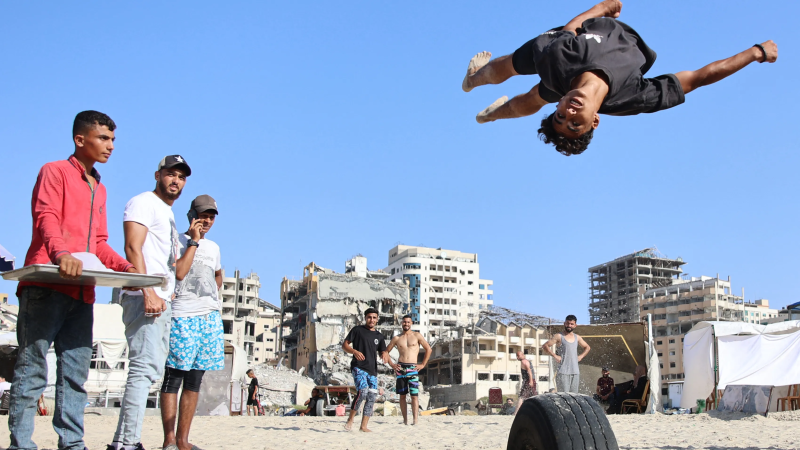Man charged in 'race war' plot targeting Black people, Jews, Muslims ahead of election
PHOENIX — An Arizona man who prosecutors say was hoping to incite a "race war" ahead of the presidential election faces federal hate crime charges in connection with a plot to commit a mass shooting against Black people, Jews and Muslims.
Mark Prieto inadvertently revealed himself to two FBI operatives and sold one of them two rifles as part of the shooting plot, prosecutors said. He was allegedly targeting a concert in Atlanta that was scheduled for May 14 and 15 because it was supposed to draw a large crowd of Black people and other minorities.
According to a statement from the U.S. Attorney's Office, Prieto had ongoing conversations between January and May with the two operatives and did not know they were with the FBI. Instead, Prieto thought they "shared his racist beliefs and wanted to commit a mass shooting to incite a race war," the statement said.
On the first day of the targeted concert, Prieto was caught with several firearms and arrested, according to court records. He was indicted by a federal grand jury this week on firearms trafficking, transfer of a firearm for use in a hate crime and possession of an unregistered firearm.
The indictment this week is the latest reported hate crime to sweep the nation ahead of November as federal data points to a rise in such incidents during the last four presidential campaign cycles. The Leadership Conference Education Fund warned that the "highly charged" political climate could foster another spike in reported hate crimes leading up to the election.
Feds: Prieto considered targeting mosque for mass shooting plot
According to the indictment filed in U.S. District Court for the District of Arizona, Prieto, 58, allegedly spoke in January with an FBI undercover agent and an FBI source about the "benefits" of using an AK-platform rifle to commit the mass shooting. He sold the undercover agent an AK-47 rifle and later an AR-15 rifle when he decided it was a better weapon for the plot.
At a Pheonix, Arizona, gun show in April, Prieto allegedly spoke with the FBI operatives about pushing the planned shooting to a later date and possibly targeting a mosque instead.
Prieto added that he wanted to carry it out before the election and as soon as possible, according to the indictment.
The FBI was closely monitoring Prieto, and law enforcement stopped him while he was driving alone in New Mexico. Officials said they found seven firearms in his vehicle, and more weapons were discovered at his home two days later when officers executed a search warrant, including an unregistered short-barreled rifle.
Each conviction for firearms trafficking and transfer of a firearm for use in a hate crime carries a maximum penalty of 15 years in prison and a fine of $250,000. Possession of an unregistered firearm carries a maximum of 10 years in prison, as well as a $250,000 fine.
An attorney for Prieto was not listed in court records.

Report: Hate crimes rise during elections
According to a 2023 report from The Leadership Conference Education Fund, each of the last four presidential campaign periods has seen an increase in hate crimes. The report, titled "Cause for Concern 2024: The State of Hate," warned the current cycle could see another spike.
"From the mainstreaming of hate and the failure of social media platforms to adequately address disinformation, the current climate is rife with opportunities for the trend of increased hate to continue into the 2024 election — unless action is taken," the report said.
It also noted that reported hate crimes have nearly doubled since 2015, and white supremacists have been "particularly active" during the last four presidential elections.
A hate crime, by definition, includes a motivation rooted in bias, according to the Justice Department. Bias can be based on a victim's perceived or actual race, color, religion, national origin, sexual orientation, gender, gender identity or disability.
Hate crime laws vary by state as to which aspects of a victim's identity can form the basis for bias, but race and religion are two of the most commonly listed. These crimes are usually of a violent nature and may also include threats of violence. The Justice Department notes that hate crimes may be wholly or partially motivated by bias but hate alone without the addition of a criminal act is not considered illegal.
Contributing: Claire Thornton, USA TODAY
Disclaimer: The copyright of this article belongs to the original author. Reposting this article is solely for the purpose of information dissemination and does not constitute any investment advice. If there is any infringement, please contact us immediately. We will make corrections or deletions as necessary. Thank you.






